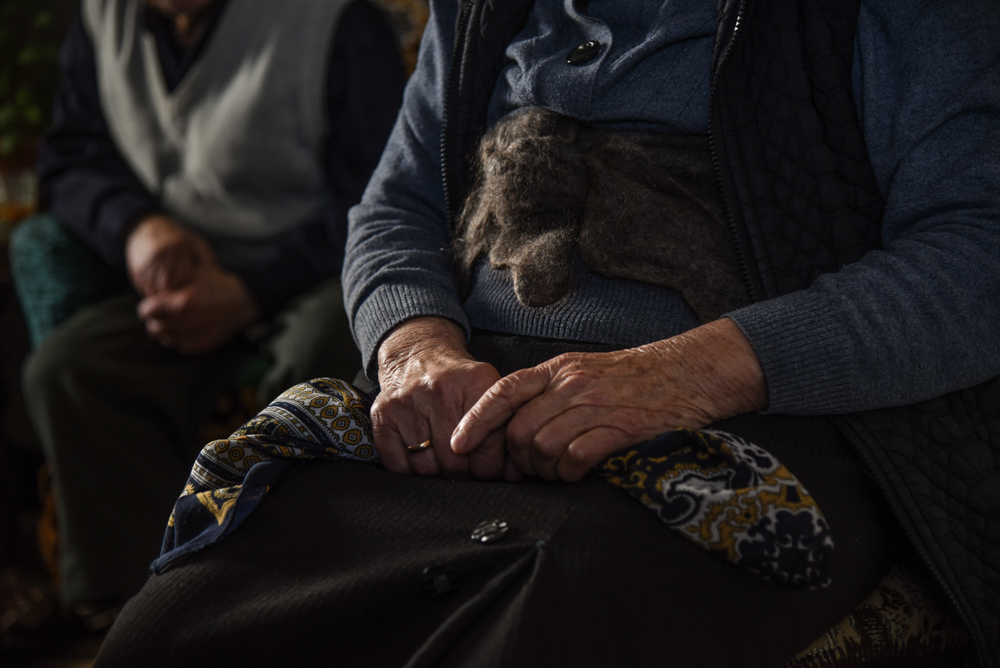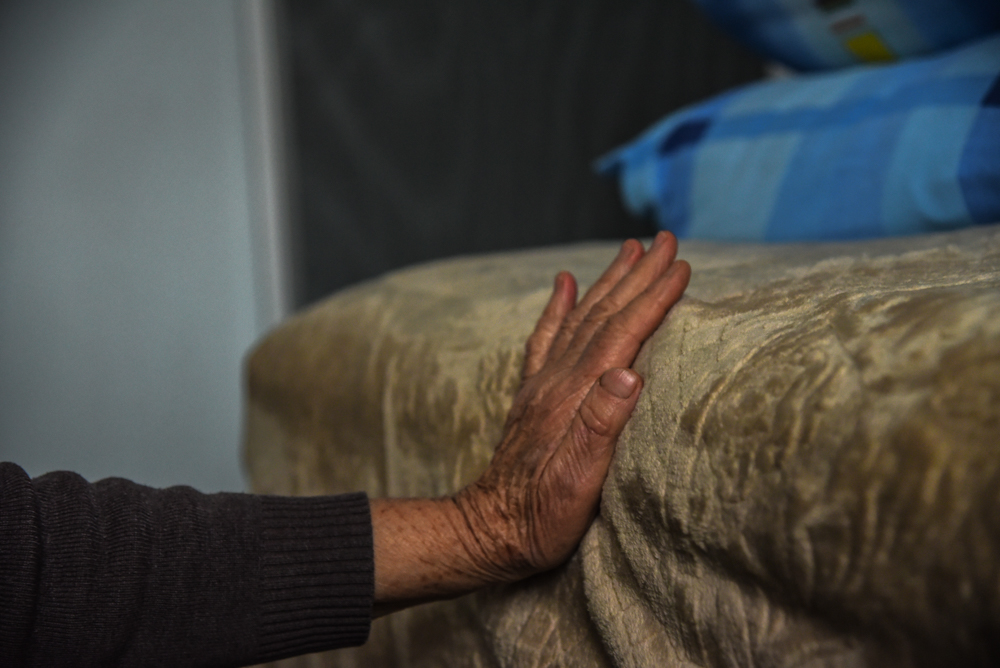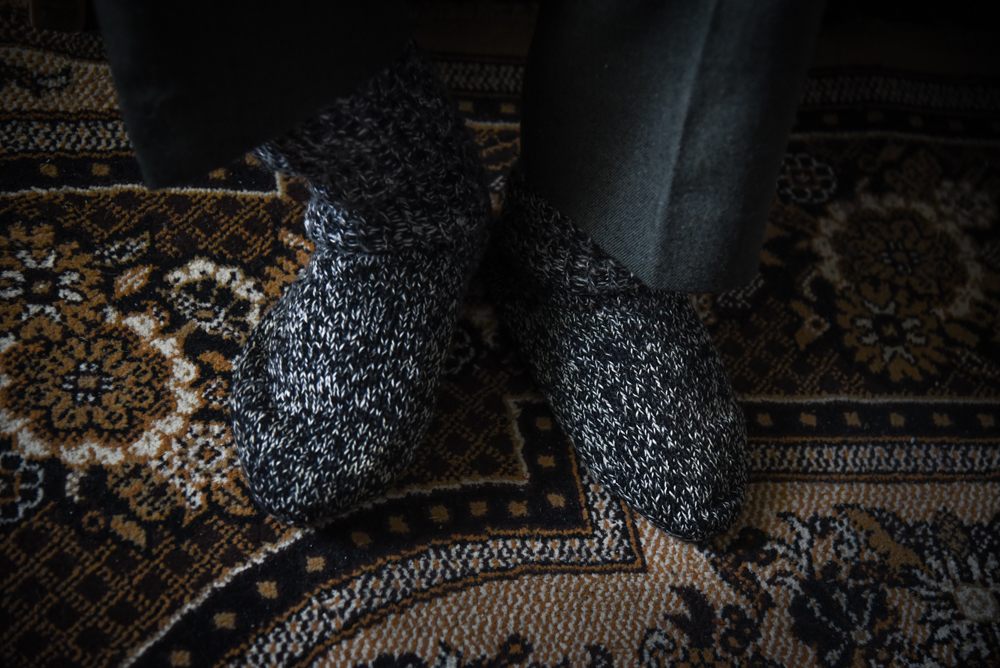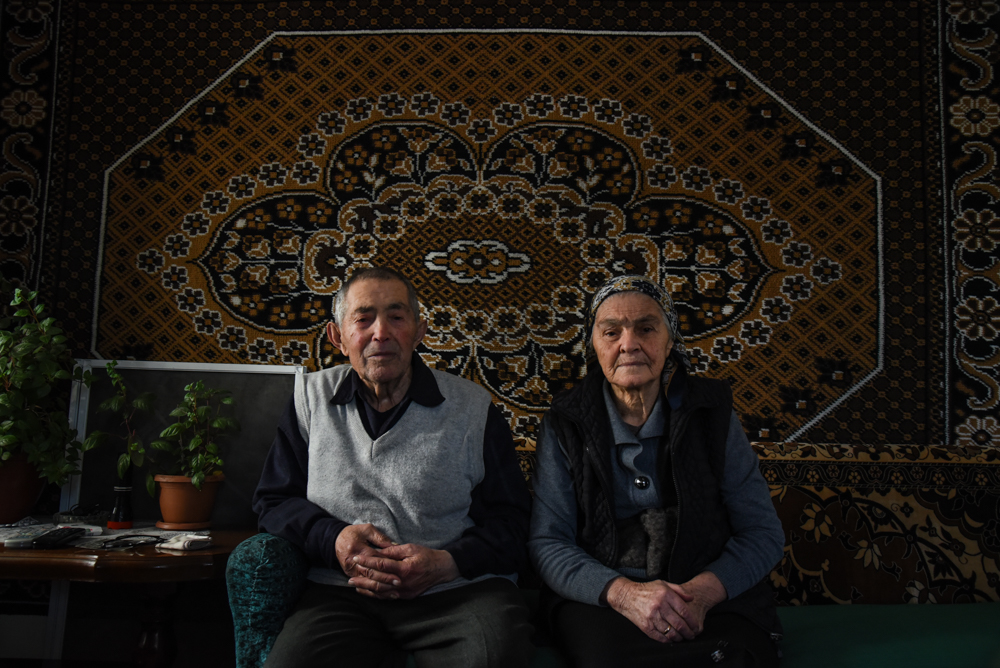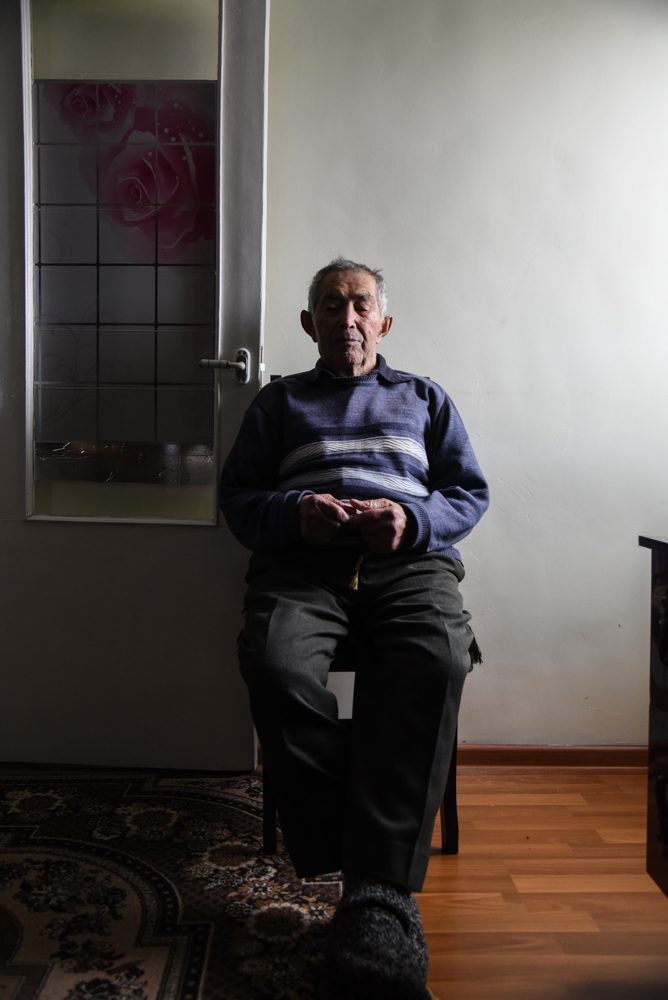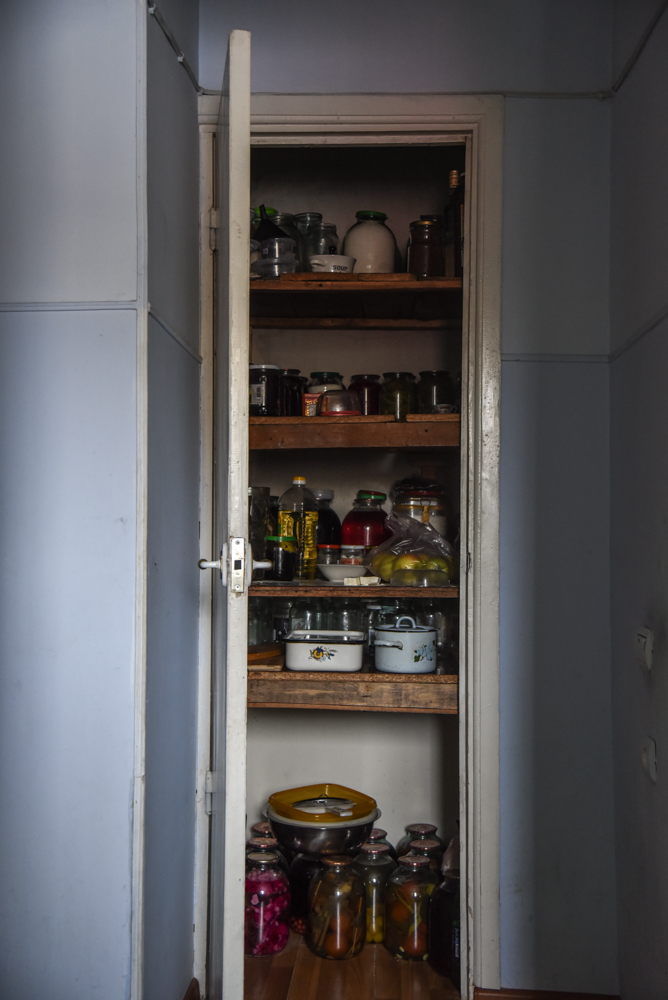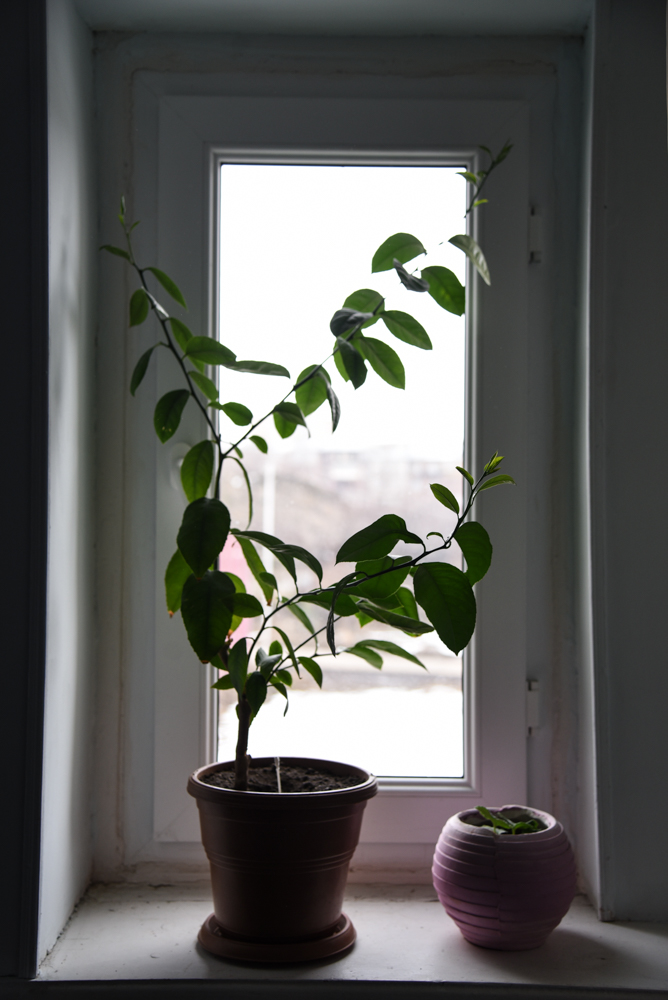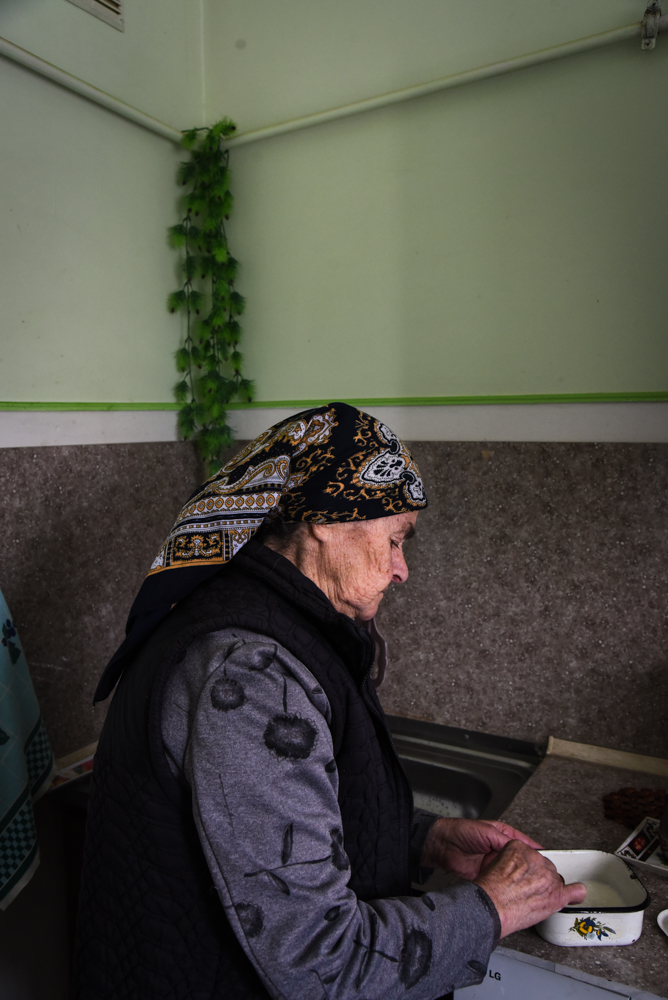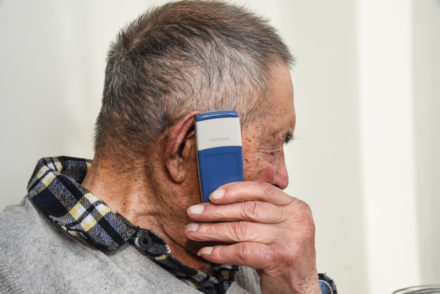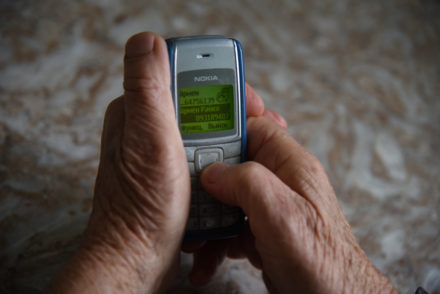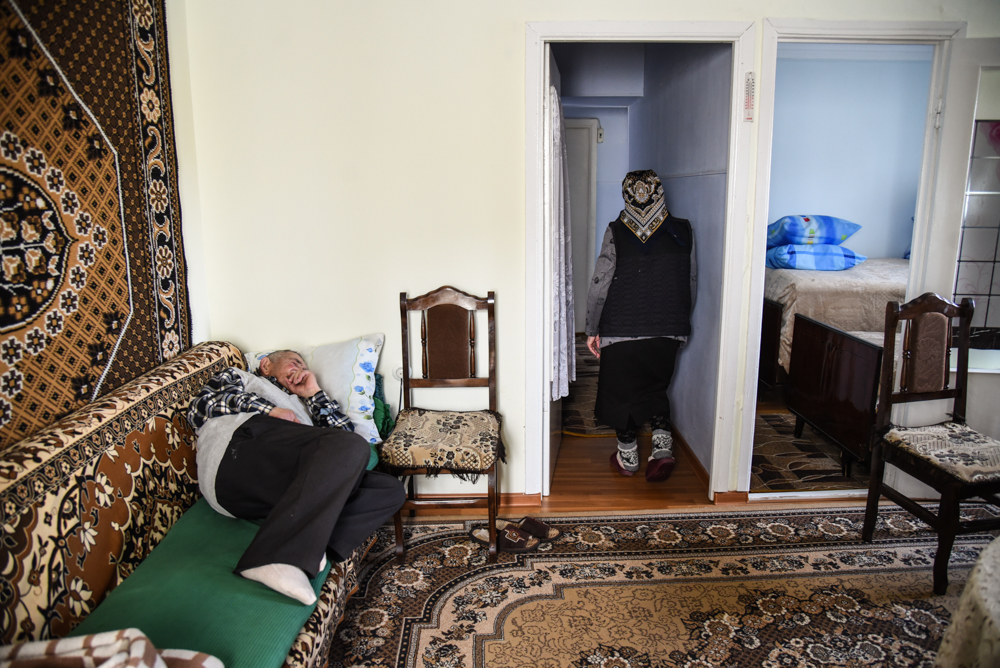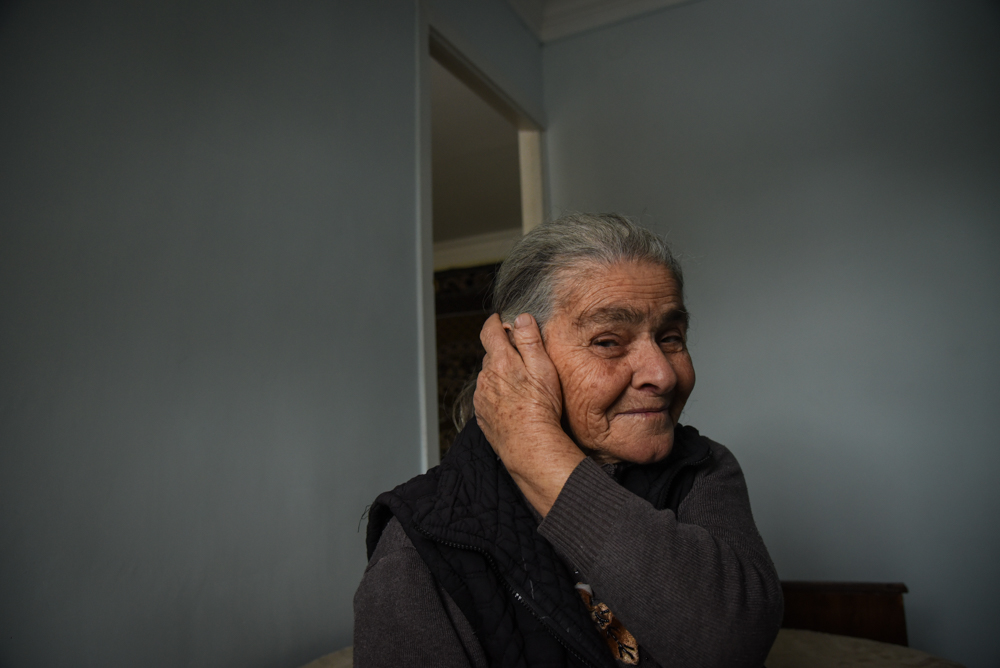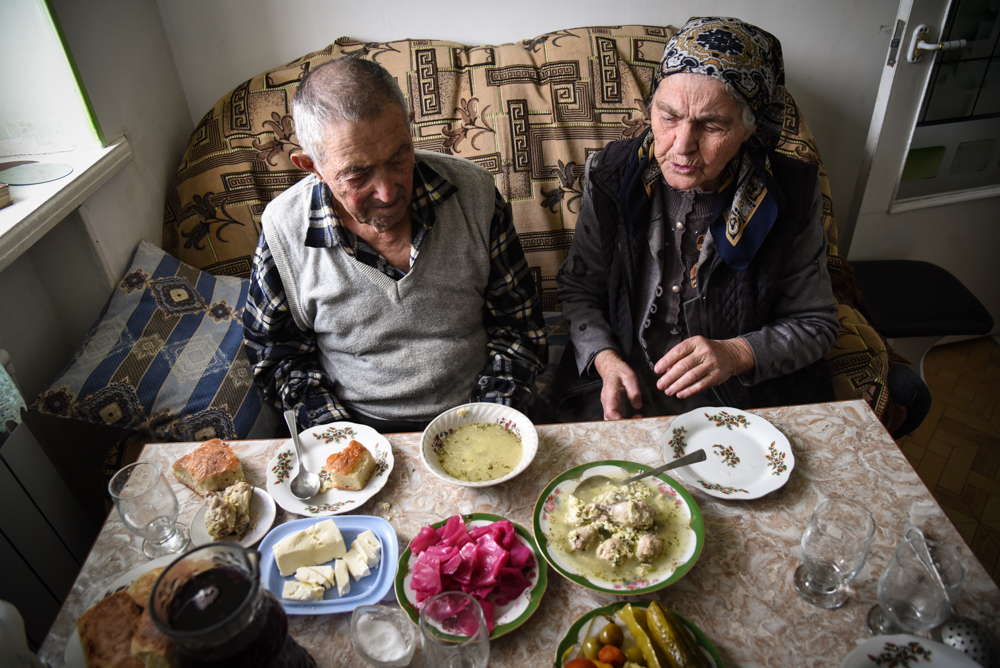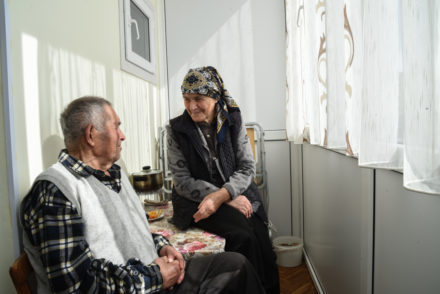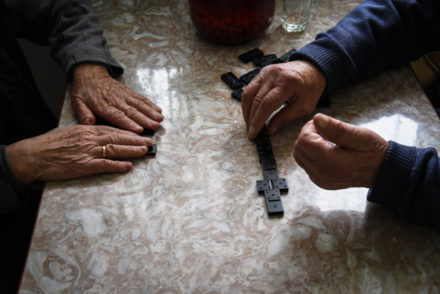THE WOUND OF GYULISTAN: Memory
“Our house was at the edge of the road. One day I came out and saw people walking down the road to the forest, many people, as they would go to a funeral or a wedding. I asked my nephew in astonishment – what is this? He said, uncle Serozh, they have called and told to leave the village, Turks have entered Shahumyan… People were fleeing from the village. We left everything, locked the gate and went out. I took only the key with me from the house”, tells grandpa Serozh – the 90-year-old resident of the village Gyulistan, Serozh Movsisyan.
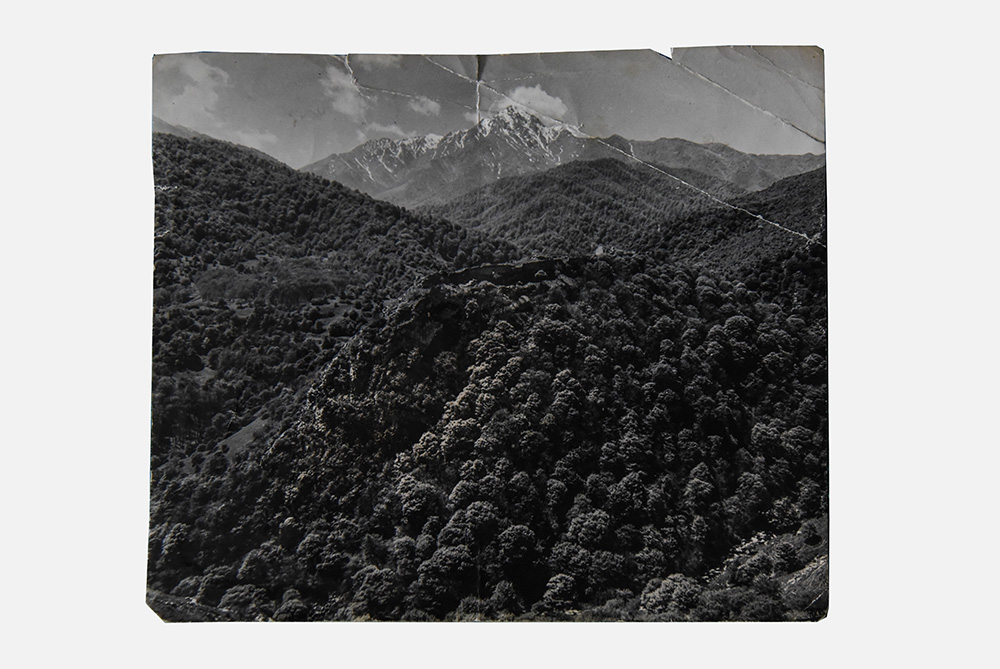
This is the mountain Mrav of Gyulistan, which is 3340 meter high. Grandma Margo has climbed it up twice and misses it the most now.
“Hours later Turks entered Gyulistan. As soon as there was a light and some movement was detected, Turks would bombard the forest from the village. And there were a lot of people there, like ants’ nest. It was a thick forest, there was no bridge anywhere, we are passing the road on foot. I had saddled my donkey and went out to the road. There was no drinking water, I stopped the donkey to get some rest, and I suddenly saw that an Armenian was up to steal the donkey, I fired with my rifle in the air and said, I am not the one to give you a “vehicle” on the frontline.
“I reached Haterk, I found my brother and his family. We took the road to Yerevan, but we were stopped by armed policemen, and they told that Levon (Levon Ter-Petrosyan) had called and instructed not to allow any refugee to go to Yerevan, place everyone there! The policemen didn’t let us to go to Yerevan. It was raining, people were so offended, that they did not get in the cars, they walked the road to Yerevan.
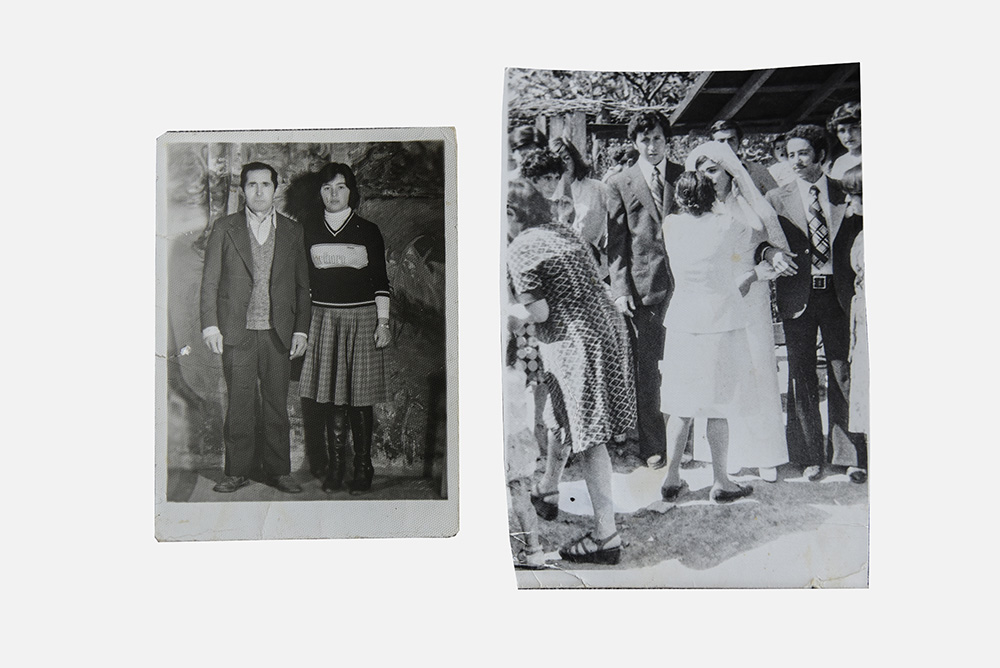
As a memory from Gyulistan only these photos are left, which were found in their robbed house and passed to them by a relative. From the left it is grandpa Serozh with his daughter Asli, from the right, it’s the wedding of their daughter Nina in Gyulistan.
The soldiers wouldn’t allow my daughter and grandchildren to get on a helicopter, I have thrown two of my grandchildren into the helicopter through the window. A fedayi pitied my daughter, he saw that she had her baby wrapped on her and was going to faint, he said, let this sister take her place! After that the father-in-law of my daughter called and greeted me that I could send them there.
The village was emptying, people didn’t believe this was the end. There was someone who had quarreled with his father slightly, had left him there, then the Turks had come and killed him. It’s a deep wound… There are many types of wounds on our village… I had a good Turkish friend, his name was Sepi, his son was always welcomed in our house, we have bought many nice presents for him. I can’t forget our village. You write and let people know the story of Gyulistan’s Serozh, the wound of my village….”
“When they attacked with grads, I got sick, they said it had killed a woman and a child in the yard of the kindergarten of Nerkin Shen. My daughter was in the region then, she worked in this very kindergarten. I had a heart attack, I was taken to Yerevan on helicopter. When the grad had exploded, it had cut all the electric wires, the daughters of many of our villagers were married in the region, so were my daughters, after hearing the news these poor people were suffering in anguish”, says grandma Margo – 80-year-old Margo Movsisyan.
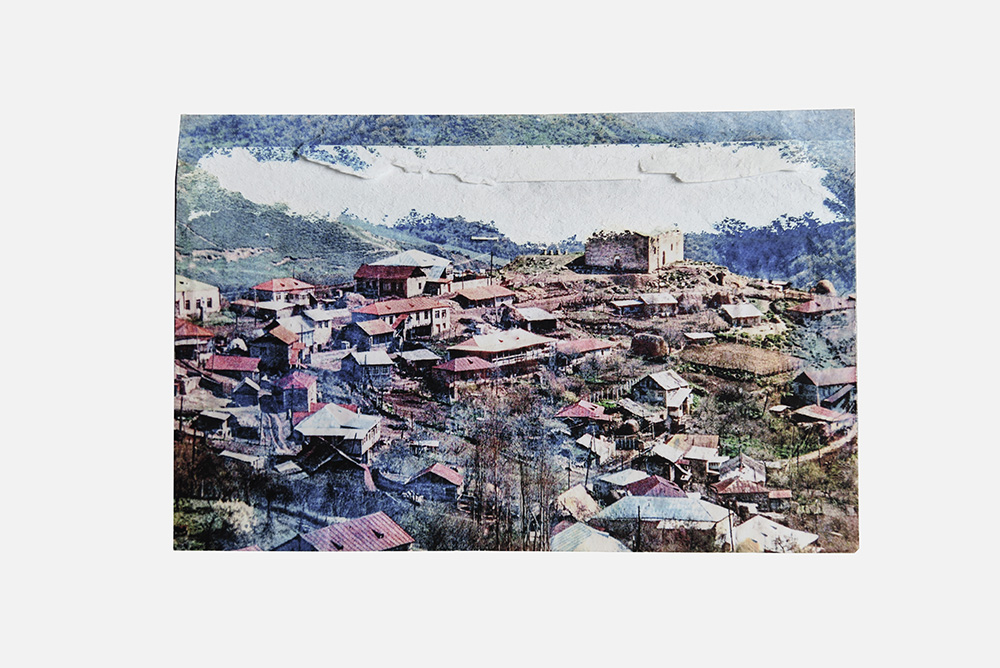
It is the left behind Gyulistan already. The church is on the highest spot, and immediately down there it is the red-roofed house of the Movsisyans.
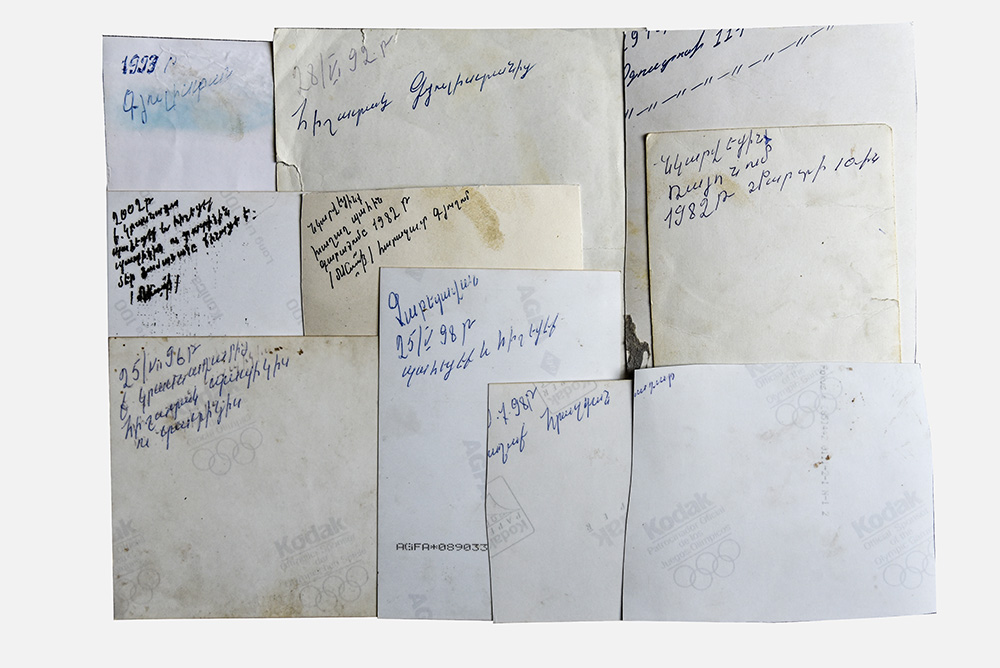
The grandpa has the habit of captioning the photos, and has always done and does it post factum. For example, “We were photographed in a peaceful moment in the garage, 1982, in our native village”, or, “2002, the city of Krasnodar, keep and remember the grandfather and the grandmother, our time has diminished.”
KINSHIP: Longing
“I was left an orphan on the day of my birth, I have never seen my dear mother. I wish I had her photo at least to see if she was as beautiful as you are, or ugly, that is what I feel pity for and miss. I placed a tombstone on the grave of my mother, when I came back from the army, it was my debt…
I miss the most the places I have been; our forest, fields, my garden, in the evenings I sing I have missed the cold waters of our forest, the delicious fruits of our forest, the berries, the strawberry, the medlar of our fields, I have missed my garden, my yard, my full, generous house, my everything…”
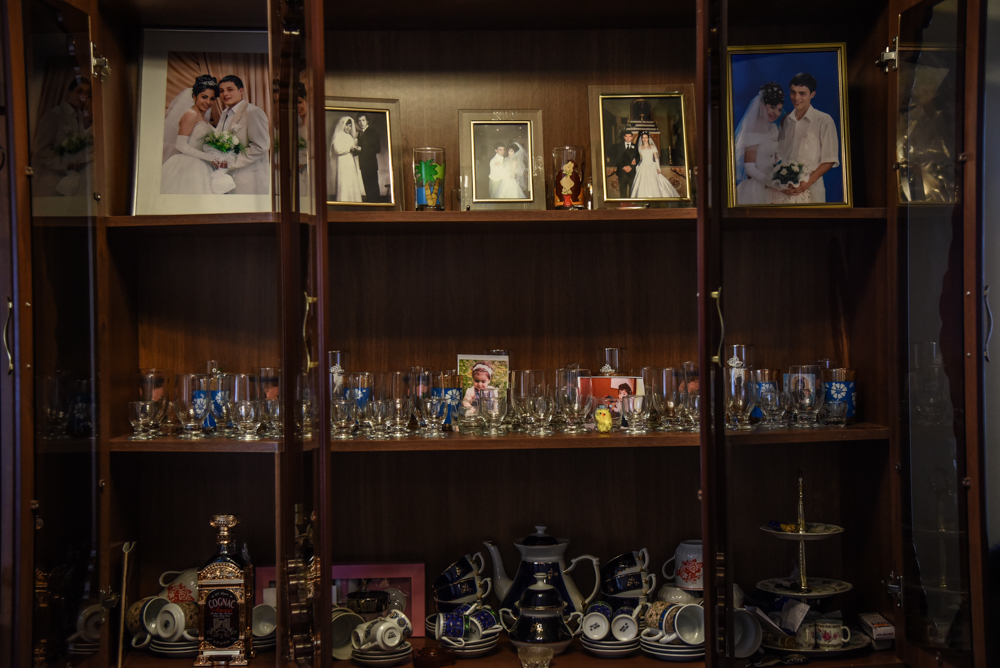
The china drawer reminds an open photo album, where the photos of the Movsisyans’ children, grandchildren, and grand grandchildren have found their place.
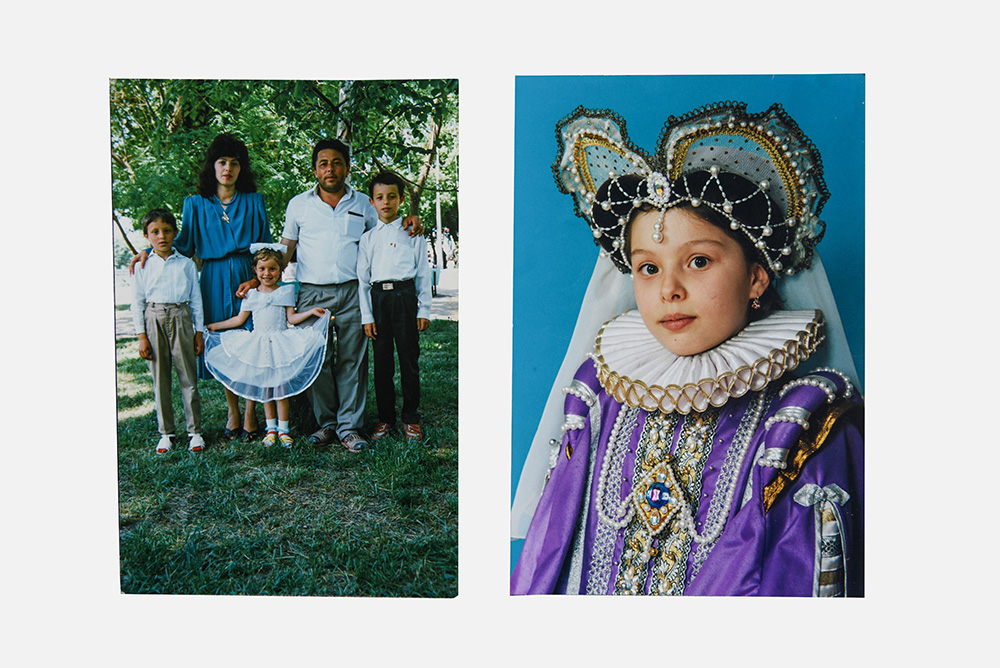
6 children, 16 grandchildren, 18 grand grandchildren. This is the eldest son – Heros – who lives in the city of Armavir in Russia, one of the daughters, Nina, lives in Moscow, Asli in Krasnodar, Anushik in Kaliningrad, Sonik in Charentsavan, Angel in Yerevan. In the photo it is the family of Asli and her daughter.
“Gyulistan has become a border, where no one lives, on one side it is the Turks, on the other, Karabakh… I miss our village, friends, neighbours, relatives, we are alone here. We would never think in our life that one day we have to flee. If we had the idea, would we collect so much wealth, such a house? Leave the suffering out, but the longing chokes us more, when one has six children and is left alone in the end…”
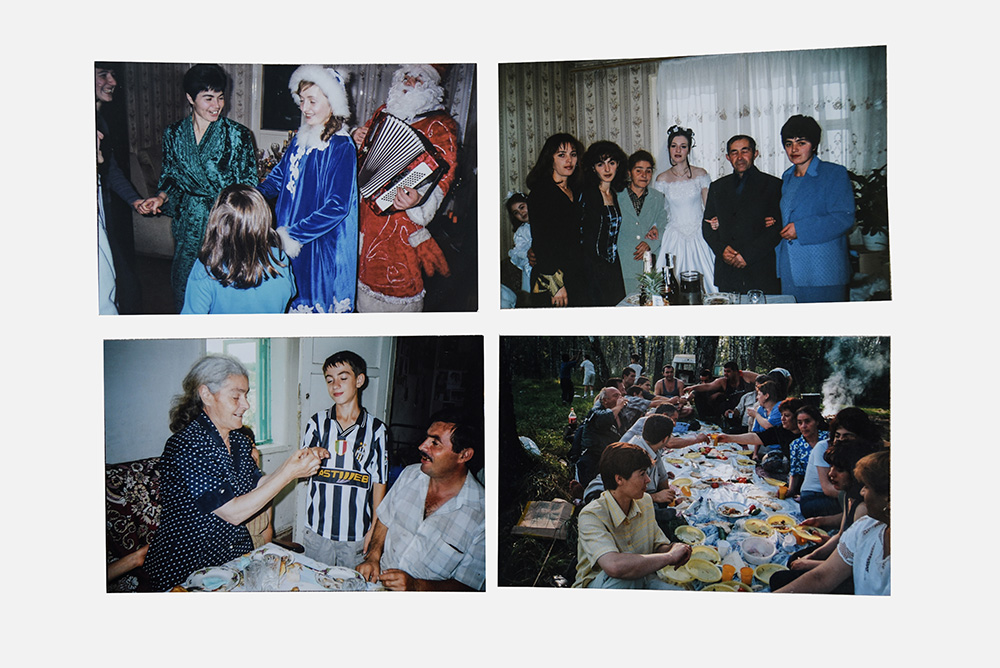
The grandpa and grandma in Russia with their great family. In the left photograph below the grandma presents the ring of the grandpa to the only son of their only son, as a memory from the grandfather.
AN ENDLESS RETURN: Loneliness
1 hour, 40 minutes: this much is needed for me to reach from Masiv to Raykom, from Raykom to Hrazdan micro and from there to the shelter of the refugees.
“Our Anna has come”, yells grandma Margo upon opening the door and hugs me. She hugs her grandchild Anna – me, I hug my grandma Bella – her. Both of us are in deep longing. I go to the dining room and see that the grandma has already laid the coffee table. I take my sit like a dear relative and begin to talk to the grandpa.
“The other day I say, Margo, if I am captured by Turks, will they kill me? She says, it’s a difficult question”, grandpa Serozh laughs and gets immediately silent. And I understand, that the longing of Gyulistan lasts not for 27 years, but for a whole life.
“I was capable of any job – farming, agriculture, constructing, I was the mechanician of the village. We had a three-story perfect house, two brochures of economised money in the bank, 3000 rubles in the bank, 50 pigs, 250 litre of vodka, a garden, a stable, innumerable animals, we left everything behind and came. After that why would I keep the key of the house?”
“I was a kolkhoz worker in the village, I was taken to have a trip to Baku as a good worker”, says the grandma and opens the door of her small, but rich closet and prepares to lay the table with the cannings she has made.
Caretaking.
The grandma makes the afternoon lunch for the grandpa with special fat free yogurt and sour cream.
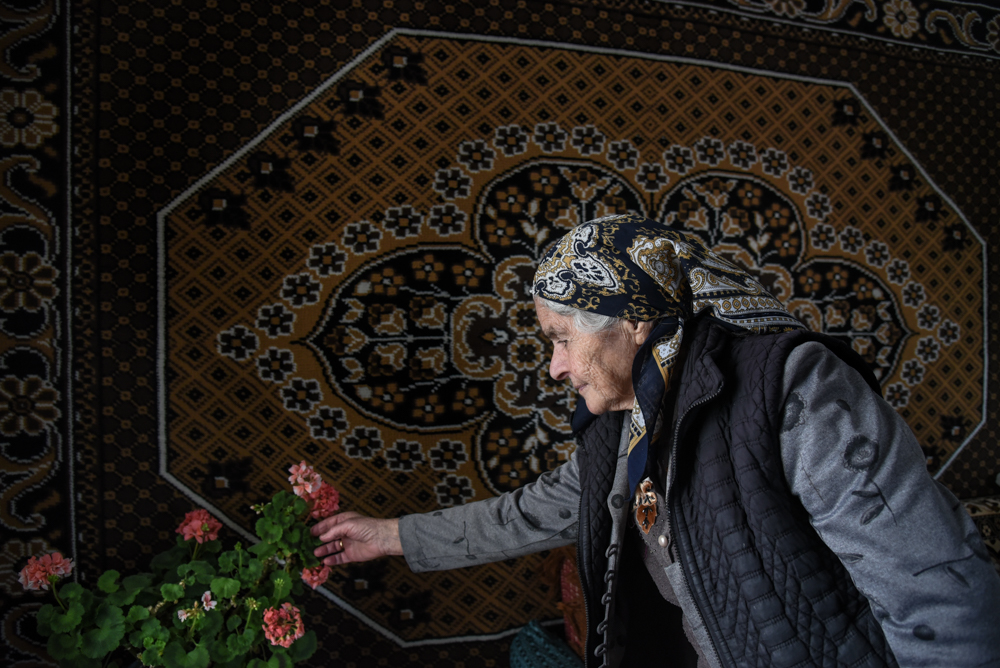
The grandma shows the flowers blooming in the corners of the house and remembers her flower garden in Gyulistan with longing. “There are roses everywhere, aren’t there? But the smell of the roses of Gyulistan none of them has. Now I have planted these in soil, they have bloomed, but no smell.” The longing of the grandma has a fragrance – a fragrance of blooming roses. (Gyulistan from Persian means garden of roses).
I ask them to tell me the story of their acquaintance and love. He says, we are together for 64 years now, which means, is there a bigger love?
“She was a pretty girl like a doll, we were neighbours, I went to the army, came back and saw she had already grown, we fell in love, we agreed and never regretted.” The grandma argues that she didn’t want to marry, she was small, in her 8th grade, she weeped so much, that on the day of the wedding she left his arm and ran home, but the godfather came and took her back.
We go to the kitchen, I hear the grandpa’s voice from the balcony, the grandma says, don’t pay attention, he sings from loneliness… Gyulistan has divided their lives between borders, and they remained in the opposite side of the border.
The grandma is interested when will their story end, so that they can let the children know to enter the computer and read about them. I say it’s almost over, you can already send the news.
On our last meeting the grandpa was a bit sick. He is answering the calls of his daughters sitting in the balcony. They are worried.
The son and the daughters endlessly persuade them to send a good telephone with a camera, so that they can have the means of talking in the camera, but they can’t get along with the new technologies.
The sun of the spring is both warming and giving hope.
Domino is the favourite game of the couple.
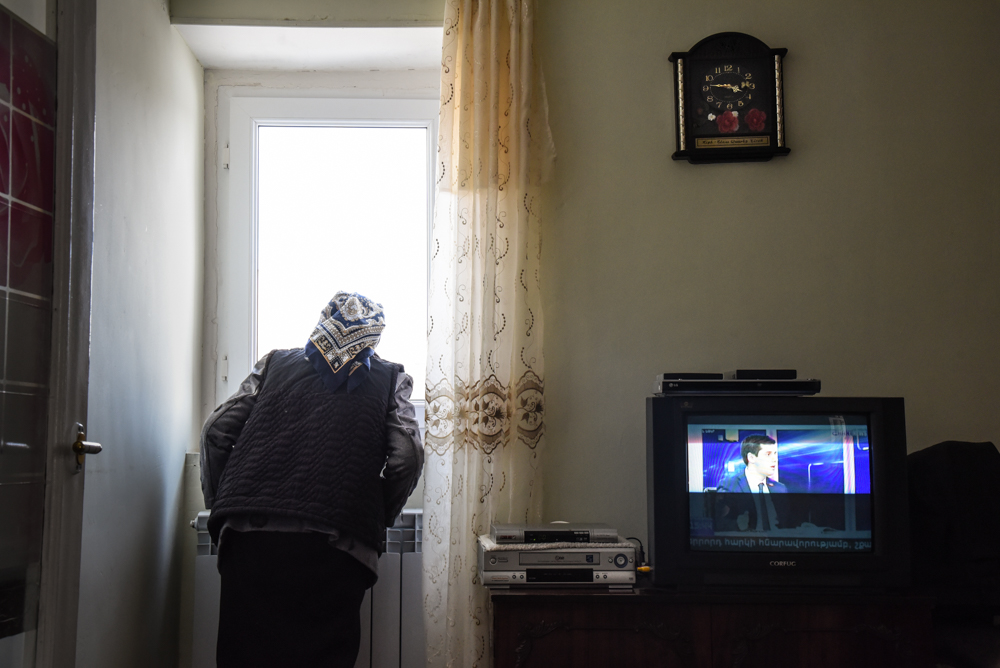
They consider themselves fortunate parents: both their children and their sons-in-law are good people, they call, they help with what they can. The son wants to take his parents to Russia to be together, but they do not want to go, they feel good in Armenia. The children have promised to come on the 20th of April to celebrate the 90th birthday of the grandpa in Hrazdan. The parents are waiting.



